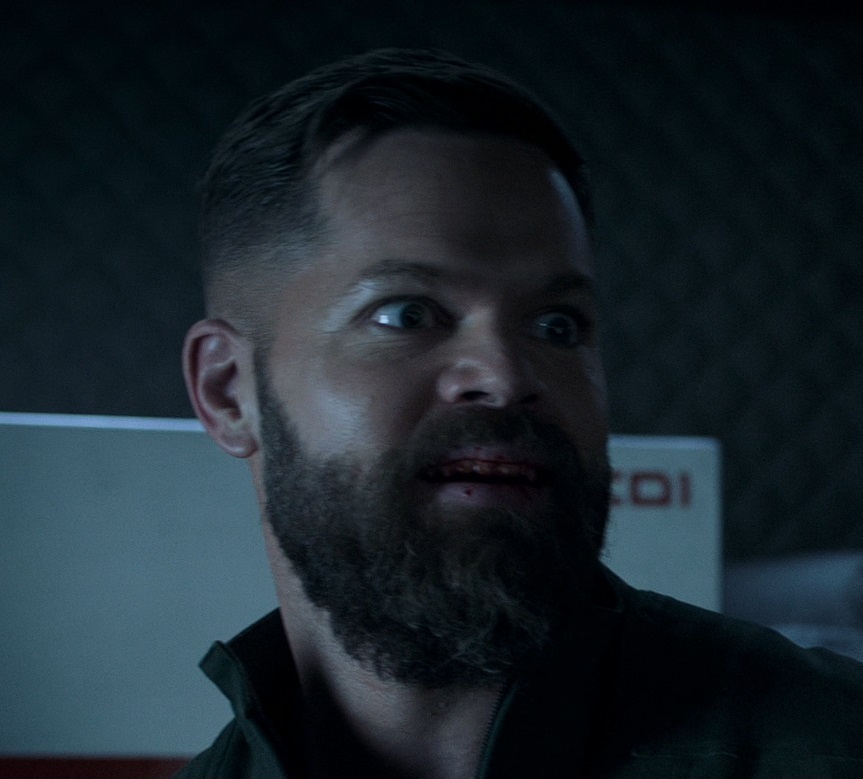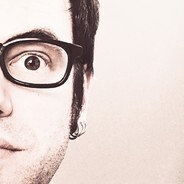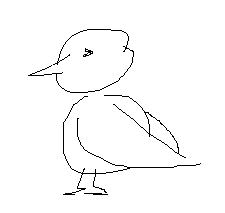South Carolina high school English teacher Mary Wood was reprimanded last school year for teaching a lesson on race. She began teaching it again this year.
Mary Wood walked between the desks in her AP English Language and Composition classroom, handing out copies of the book she was already punished once for teaching.
Twenty-six students, all but two of them White, looked down at Ta-Nehisi Coates’s “Between the World and Me,” a memoir that dissects what it means to be Black in America — and which drew calls for Wood’s firing when she tried to teach it last year in her mostly White, conservative town. Wood crossed to a lectern and placed her hands on either side of a turquoise notebook, open to two pages of bullet points explaining why she wanted to teach Coates’s work.
“That book that you guys have, it deals with racism,” she said on a recent Tuesday. “It’s going to be something with which you’re unfamiliar. That you need to spend time to research to fully understand.”
Wood stared at her class. She tried to make eye contact with every teenager. Anyone, she reminded herself, might be secretly recording her — or planning to report her.
…
Plus, both teachers believed the book, a Pulitzer Prize finalist, is superbly written: a master class in the deployment of rhetorical devices. There was no better way to teach children how to formulate their own arguments, they thought.
“It teaches kids a different perspective, [it] teaches kids how to write well,” Wood said in an interview. And “it’s the right thing to do.”
Good. We need more activist teachers willing to teach the realities of race and racism. It would help if the teacher unions got more militant too.
This isn’t activism. It’s honesty.
You’re correct that it’s honesty. Honesty becomes activism when the truth is banned.
deleted by creator
I associate activism with an agenda. Activist may or may not be dishonest, but if they are they justify is by the righteousness of their cause.
Teaching children reality in school is not an agenda.
An agenda is a plan or program, often ideological in nature. If your ideology is that children should be taught the truth, then acting in accordance with that ideology is following your agenda. And if you act to teach children the truth in defiance of the prevailing agenda to teach them falsehoods, then that is inherently activism following said agenda.
The concept of an agenda is not inherently good or bad. It is simply following what you believe in through pre-planned actions. Buckling your seat belt is part of an agenda. You take action in line with the ideology that a seat belt will prevent you from flying through the windshield in the case of an accident, because you believe that becoming a lump of meat on the asphalt is worse than whatever injuries you could get from wearing the seat belt. Other people may have opposing views (maybe they want to be crushed into lumps of meat, idk), and not wearing a seat belt is part of their ideology.
The belief that somebody having an agenda is inherently a bad thing is yet another part of the anti-intellectual agenda to bully people into obedience by taking words with important meanings and rendering them into useless fear mongering that can be used as a lash against anybody who dares to speak out. The same thing that happened to “woke” and “politically correct.”
deleted by creator
It was also done explicitly within the bounds of the law.
As school policy demanded, she had gained permission to teach “Between the World and Me” from Chapin High School’s new principal, a Black man. She had given every student’s parents a chance to review her curriculum. She had offered to opt out any child whose family disliked Coates’s book. And she had assigned a conservative voice pushing back on Coates.
So I wouldn’t call it activism either.
School policy isn’t “law” and can be threatened and changed given a shift in who holds power over the school system. Just because she currently has “protection” doesn’t mean she isn’t taking a risk with her actions. Policy and law also does nothing to protect her against an individual or group who may decide those regulations don’t go far enough and take “justice” into their own hands.
What do you think making this distinction achieves? Cause it sure as shit doesn’t help spotlight courageous action taken in the face of adversity. What we don’t need is people dismissing the problems and dangers people like this face, trying to ignore them in the name of some perverse “neutrality”. That isn’t helping.
Activism implies the advancement of an agenda. Reality and the acknowledgement of reality is not an agenda.
When someone else is actively trying to hide or obscure it? It absolutely is activism. You insisting this shouldn’t be noteworthy only serves to dismiss the risk to their financial and/physical well-being that people like this willingly take on.
In short, you’re not in anyway benefiting the truth, and are in fact diminishing the efforts being made to preserve it.
But most of the teachers unions in places like this don’t support her.
Not all teachers are educating kids. :(
Last spring, two students in that year’s English class had complained to the school board, alleging that “Between the World and Me,” which contends racism is embedded in American society, made them ashamed to be White.
What a pair of awful little shits.
I bet their parents were 10 times worse.
Removed by mod
They, frankly, should be ashamed. Although, ashamed in general.
Good for her.
Not all heroes wear capes.
Well. She might. I dunno.
Maybe we could send her one?
I really want to now
I love what she’s doing. That said-
“That book that you guys have, it deals with racism,” she said on a recent Tuesday. “It’s going to be something with which you’re unfamiliar. That you need to spend time to research to fully understand.”
I doubt they’re unfamiliar with racism, what with being raised by white conservative southerners. They probably heard the N-word a thousand times before they could say it themselves.
Of course, they’re very unfamiliar with being at the receiving end of racism, something that Ta-Nehisi Coates can teach them a lot about.
I doubt they’re unfamiliar with racism, what with being raised by white conservative southerners. They probably heard the N-word a thousand times before they could say it themselves.
Hi, white southerner here. FYI, that’s really not how it works. Regardless of whatever behavior they’ve grown up with, they most likely don’t think it’s “racist;” they think it’s “normal.” Hell, they might even “have a black friend” who is “one of the good ones” and are perfectly polite to any well-dressed, middle-class, Carlton-from-Fresh-Prince-of-Bel-Air-esque black person they occasionally interact with. It’s just all those other “criminal” “hoodlums” from the “inner city” that they have a problem with, and they’ll swear up and down that the reason is anything but race (absolutely refusing to understand the concept of institutional racism, or indeed, cause-and-effect in general).
That was kind of what I was saying, I was just saying it more facetiously. They are familiar with racism because they’re steeped in it and it’s so pervasive that they don’t even know it. But what they’ve never done is experienced it.
But that’s not it, though. They are unfamiliar with racism by definition, because they define it as something only other people do.
I think we mean ‘familiar’ and ‘unfamiliar’ in two different ways. I understand what you’re saying and by that measure yes, they are unfamiliar with it. I just meant ‘familiar’ in the sense that it’s something they’ve done plenty of times themselves whether they are aware of it or not. By that measure, it is not unfamiliar to them, it is just unrecognized.
Either way, my real point is that they have most likely never been the object of racism and that’s what they will benefit from learning about by reading this book.
deleted by creator
I was being a little facetious. The teacher obviously meant that they had never been the object of racism. I was just saying that because they’re white, white and Southern, they probably have plenty of racist relatives. So they’ve experienced racism, they’ve just never been harmed by it like someone on the receiving end.
deleted by creator
They probably heard the N-word a thousand times before they could say it themselves.
A lot of them don’t even think that’s racism.
Which is exactly why they need to read this book.
Absolutely! However, the bigger obstacle is right there in the article; “Twenty-six students, all but two of them White”.
We need to forcibly re-desegragate schools and break up the white school districts that were created by the more modern intersections of race and class. As long as we have 24-to-2 classes we are never going to save enough white kids from growing up to be racist.
deleted by creator
Hey! She’s trying to edumacate us!
This book is so good, if you have not read it please do. The audiobook is narrated by the author.
– Gen x northern European dude
If anyone needs to be taught what it’s like to be black in America, it’s white people in America.
Mr Coates is an American treasure of literary prowess generations should lift up by buying and reading his shit and respecting his opinions on the Civil War, classic video games, and racism.
Comparing with all the weird stuff I’ve read in school, this is nothing worth noting.
So if it’s part of English class, what lessons are given on the books contents?
Critical reading.
Probably the same things as any book. Why do you ask?
Such as? It’s been a long time since I was last in school. I’m curious. I’m not trying to funny (since apparently stuff like this rubs some people the wrong way).
Maybe read the article, bud. Rhetorical structure.
Oh fun. A book that says all white people are guilty of
original sinracism and need to repent.She should be fired.
You don’t have to give us the exact page, but can you please give us the chapter number of “Between the World and Me" which claims that all white people are guilty of racism and need to repent?
I just googled for the summary. Seemed pretty succinct.
In other words, you have no idea if it actually says that. You’re just guessing based on whatever right-wing outrage about it you’re reading about on line.
Sorry, I didnt realize sparknotes was right-wing.
Weird, the word ‘guilt’ doesn’t appear on that page. In fact, that doesn’t in any way look like a summary that claims that all white people need to feel guilty and repent.
Can you quote the section of the summary that you believe makes that claim?
Its clearly dogwhistling it
Please quote the part that is dog whistling. I already asked you for a quote. You do know how to copy and paste, don’t you?
We’re all still waiting on that quote.
Well, conservatives certainly use a lot of dog whistles.
Removed by mod
Removed by mod
Removed by mod
I will be in minority here, but she is a teacher of English, and this topic should be taught in social studies. It is unprofessional to do what she is doing.
You cannot hope to teach any kind of literature without teaching important context around it. You are wrong.
Unless the book is literally recognized achievement, it should not be in the class. I say this without arguing with your statement that context is important.
It is, though. You just don’t know it – probably because your dumbass teachers avoided non-white authors in your classes.
The book was written in 2015. It did not even had time to be recognized as literally important, only as socially important.
So you’re saying an English class shouldn’t study modern usages of the language and only read older pieces that are considered “important” by an unspecified metric? Sounds totally reasonable
Homie got real quiet when everyone pointed out how wrong they were, but conveniently never admitted it.
They “admitted it” by way of blaming the post for not being a verbatim transcription of the article they failed to read
It won the National Book Award and Toni Morrison praised it. The Guardian ranked it 7th on their list of the 100 best books of the 21st century. So uh…
Yes, for “depiction of America’s race problem”. And it is a good book for that. There are good books for popular science, that also takes awards for good depiction of, say, physics. But you do not study those in Literature classes, do you?
Science books don’t tend to employ rhetorical devices, something that IS taught in English classes and what this book is being used for.
If a science book were ever to be an excellent example of rhetoric? Yes, it should be used in an English class.
“literally”
You keep using that word. I do not think it means what you think it means.
However, the book DOES have “literary importance,” as determined by it winning the National Book Award, winning the Kirkus Prize, and being a Pulitzer finalist.
Though I notice elsewhere in the thread you refer to those as “literature prices” multiple times, and would like to point out that they are, in fact, “prizes”. Prices are the cost of things you buy at the store. Prizes are awarded for achievement in a given field.
As such, I do not believe you are fit to be the arbiter of what gets to be taught in English class. It is clear you could use a few lessons on the subject yourself, and besides, before espousing that a book should only be taught in one type of classroom (Social Studies) and not another (English), a person should probably read said book. You clearly haven’t.
Hey, I changed my mind. It turns out the teachers also thought that the book is superbly written and being excellent material for rhetoric. This information was missing in the original post, that created impression that she gave the book only because it is about racism.
Good for you for admitting you changed your mind. Most people don’t have the courage to do that.
It won the National Book Award.
I doubt most used math books received awards
deleted by creator
A large part of English classes are about influential literature, not learning how to read. The Great Gatsby, Moby Dick, The Grapes of Wrath, Animal Farm, etc. They all have a message, and that’s part of English literature classes. If a book doesn’t have anything to say it isn’t worth reading. What books should be allowed to assign, in your enlightened opinion?
Is this book influential? I doubt so.
You probably should have taken an English class, then.
Is this book influential? I doubt so.
https://en.wikipedia.org/wiki/Between_the_World_and_Me#Reception
On November 18, 2015, it was announced that Coates had won the National Book Award for Between the World and Me.[20] NPR’s Colin Dwyer had considered it the favorite to win the prize, given the book’s reception.[6] It also won the 2015 Kirkus Prize for nonfiction.[21]
The book topped The New York Times Best Seller list for nonfiction on August 2, 2015, and remained number 1 for three weeks. It topped the same list again during the week of January 24, 2016.[22]
The book was selected by Washington University in St. Louis and Augustana College[23] in 2016, as the book for all first-year students to read and discuss in the fall 2016 semester.[24] In the same year, the book was ranked 7th on The Guardian’s list of the 100 best books of the 21st century.[25]

Yes, it is a good social study book. It is not taking those prices for literature achievement.
Yeah, it was only a finalist for a pulitzer prize. It’s probably not worth considering.
However, your comment wasn’t about it being influential. It was about whether topics, such as this, should be examined in an english course. Again, what books do you deem appropriate for such a course?
Yes, it is socially important book. I do not see it is getting any literature prices. As I said, it should be a read in social study classes.
Dude, it was a finalist for a Pulitzer prize! What more do you need?
Also, again, what books are acceptable! You say not this one, but you can’t answer what is OK.
Hey, I changed my mind. It turns out the teachers also thought that the book is superbly written and being excellent material for rhetoric. This information was missing in the original post, that created impression that she gave the book only because it is about racism.
… But the fact that it won awards didn’t convince you? Bullshit.
Good on you. Thank you.
That’s bs. I was taught of mice and men for my gcse literature exam and one topic that can come up is race. To kill a mockingbird is also taught at a level English and only a fucking moron would deny that the books about injustice towards a black man.
Teacher here. IMHO the job of any pre-university teacher goes beyond the strict subject matter of their class. Nothing wrong with a math teacher doing a bit of computer science, or a language teacher talking about history, or a history teacher doing ethics. Helps students develop their critical thinking skills, judging by themselves the worth of someone else’s opinions. Some people think that teachers must be controlled so that they don’t indoctrinate kids or whatever but this completely ignores the fact that kids are smarter than what most adults think. School is the place where they can exposed to a diversity of opinions, new ways to think about stuff, learn to live in a society. If you think of school as a service and education as just another product, you’re wrong.
I couldn’t even imagine an English teacher refusing to teach any books that involve history. I would get my daughter transferred to a different class because that is not a good learning environment.
My daughter is in middle school. They were given three book options to study. One of them is an award-winning autobiographical graphic novel about two child refugees in Africa. I suppose the person we’re talking to would say that would only belong in social studies too. I mean it involves Africa and war and it’s a true story. Does any of that belong in English? (Yes.)
Teachers absolutely have to be controlled. The shit people believe nowadays should stay away from educational system. I do not want intelligent design to be part of biology class only because a teacher decided “to expand views of the students”. But it works in both ways. Progressives topics should be avoided too if they are not part of the program. I do not want CRT, for example, to be thought to 8 graders either, especially in literature classes, unless it is part of the curriculum. There is acceptable program, and teachers should go alone with it.
Are you getting dizzy? You’re changing your arguments so frequently I figure you must, maybe you should sit down. Being progressive is not equivalent to denying science. Teaching an award nominated book should not be banned simply because it broaches the topic of race. And no, teachers should not go along with what’s always been taught, because the world hasn’t stopped evolving in the 1960s.
Being progressive is not equivalent to denying science.
Never said it is, except in particular context - when it is outside curriculum.
Teaching an award nominated book should not be banned simply because it broaches the topic of race.
I never said it should not be taught “because of the topic of race”. In fact, I said it should be thought but in social studies class.
And no, teachers should not go along with what’s always been taught…
And this is how intelligent design will be in the school.
We are democracy and democracy is build on rules. Following the rules is essential to the democracy, otherwise it becomes anarchy. You can’t have “let’s break the rules, but only when I like it” and have flourishing country.
A social studies teacher is not the right person to be analyzing and teaching modern persuasive writing styles. That material belongs in an English class and if you teach it in social studies you have philological fucked up.
And if the teacher said “This book is about persuasive writing style” we would not have this conversation. She specifically gave the book because it describes racism, she did not even mentioned the style (at least per article).
I want my child to learn about racism from the teacher who is trained to talk about this topic, who has specific class for that, and bring it as a part of complex social problems that exist, not from activist in literature class, who suppose to teach literature.
She told her class they would spend the next few days listening to a recording of the book, while each student took notes. After that, they would conduct independent research to develop their own arguments. They could agree with Coates, disagree with him or land in the middle.
…
Both teachers believed the book, a Pulitzer Prize finalist, is superbly written: a master class in the deployment of rhetorical devices. There was no better way to teach children how to formulate their own arguments, they thought.
“It teaches kids a different perspective, [it] teaches kids how to write well,” Wood said in an interview.
You’re just wrong about what kinds of works a good AP Lang class should be teaching. You’re wrong about what the class is, how it works, and what it intends. You’re wrong about the science of education going into this. You’re wrong about the cross-disciplinary nature of the lessons. You’re wrong about the purpose of this book being assigned. And in that wrongness you are advocating for a world where education does a worse job teaching kinds how to navigate and be resilient in a world full of people that are going to constantly be trying to convince them to believe certain things and act certain ways.
deleted by creator
Is CRT in the room with us right now??
I do not understand your question. Are you still talking about Critical Race Theory, or switched to Cathode Ray Tube?
I do not want CRT, for example, to be thought to 8 graders either, especially in literature classes
Well that’s good, because it’s usually only studied in a graduate-level law school course. Good job buying into that Republican rhetoric.
If my kid comes back from biology telling me about intelligent design because his teacher mentioned it in class I admit I’d be pissed off, but I don’t think I’d call for the teacher to be fired or try to censor them. Instead I might tell them about the scientific explanation and why I think what the teacher says is bullshit. As a parent I try to participate in my kids education. Problem is, some parents don’t, and then they go crazy when teachers different ideas than theirs.
I feel like a solid half of the books I was assigned in k-12 had to do with the holocaust, slavery, or the cold war. To kill a mockingbird, number the stars, boy in striped pajamas, Anne Frank,
number the stars, night, the hiding place, animal farm, the giver etc. This definitely doesn’t seem out of the ordinary or inappropriate to me. I’m more skeptical of teaching books like Lolita (though I personally feel even young kids can read reasonably critically, especially with the guidance of a teacher).Sometimes a book is made to be read to class to train certain understanding of words and topics. This is an appropriate English lesson.
You know, sometimes literature exposes us to the perspectives and life experiences of other people who are not like ourselves. And thus, through literature, we broaden our perspectives and better empathize with others instead of being ignorant hateful shitbags.
And by sometimes I mean most of the time.
You need to talk about something in English class. Why not two-birds-one-stone this?
No, it shouldn’t. Literature doesn’t exist in a vacuum.
Siloing is harmful, classes should actually coordinate with each other to teach holistically.
Between the World and Me is a book-long letter to Coates’ son about his own experiences with racism. Why would that be taught in social studies? I read Ralph Ellison’s Invisible Man in English class. It dealt with racism just as much as Between the World and Me. It wasn’t taught in social studies because it’s literature. So is Between the World and Me. You don’t read literature in social studies, you read it in English. In fact, I don’t remember ever reading a book in high school social studies that wasn’t the textbook. What did you read?
Is it true Americans bend onto one knee whenever a black person passes?
The fuck?
I see it in video.
What on Earth are you talking about?
Got it. You’re just an extremely tedious troll. Not interested. Goodbye.
I don’t think encouraging students to cultivate a POV outside their normal lens is necessarily bad. Frankly it points to the power of composition. AP students should be dealing with harder work in their respective subjects.
Yeah so science teachers shouldn’t teach math. gtfo
Why do you think you’re in the minority? Could it be because you’re an idiot?
I don’t know if it is only the US that does this, but why is social studies separated from English in the first place? In my country, social studies was a part of the primary language class. They were not separate classes.
They’re two pretty different subjects. One teaches about grammar, rhetoric, vocabulary, how to express ideas in words and how to understand others’ expressions. The other is about our interactions with the humans around us, whether in written form or not, whether in English or not. A big part of my social studies courses was about people who didn’t even know English.
Social studies and language go hand in hand, and learning both at the same time is way more efficient than separated, which is why for example in Sweden, Swedish class includes mostly local but also some global cultural studies, litterature, religion, etc.
English class includes some of British and American culture studies as well.
We don’t have a class only for social studies, we get graded on both at the same time based on the knowledge we present, and how proficient we are at presenting in written and verbal form.
Maybe it’s because this is how I grew up that I think it is better, but I just don’t see the point in separating them.
Sounds like you didn’t have a combined class, you just didn’t have a social studies class. Naturally learning about literature introduces you to broader topics about social systems, but if you didn’t study society specifically, then you didn’t have a social studies class.
We did study specifically about social studies though, it was a segment of Swedish class that lasted a few weeks every year throughout the second half of elementary school. Though it looks like there was one single class in high school, and it looks like I had it too. Maybe I just forgot. Before that it was all one class though.
Interesting. I wonder why Sweden doesn’t (or didn’t) break it out into its own thing.
Agreed, I thought it was a history class or something until your comment.
Totally missed the first sentence apparently



















